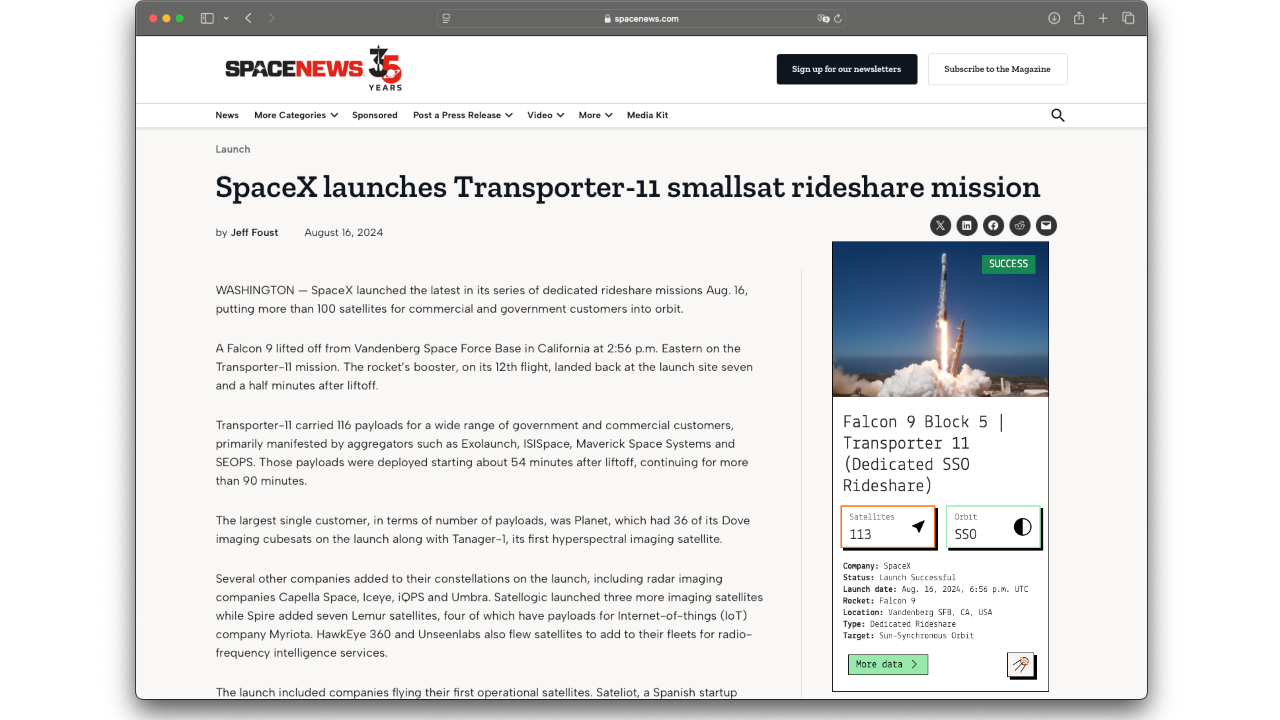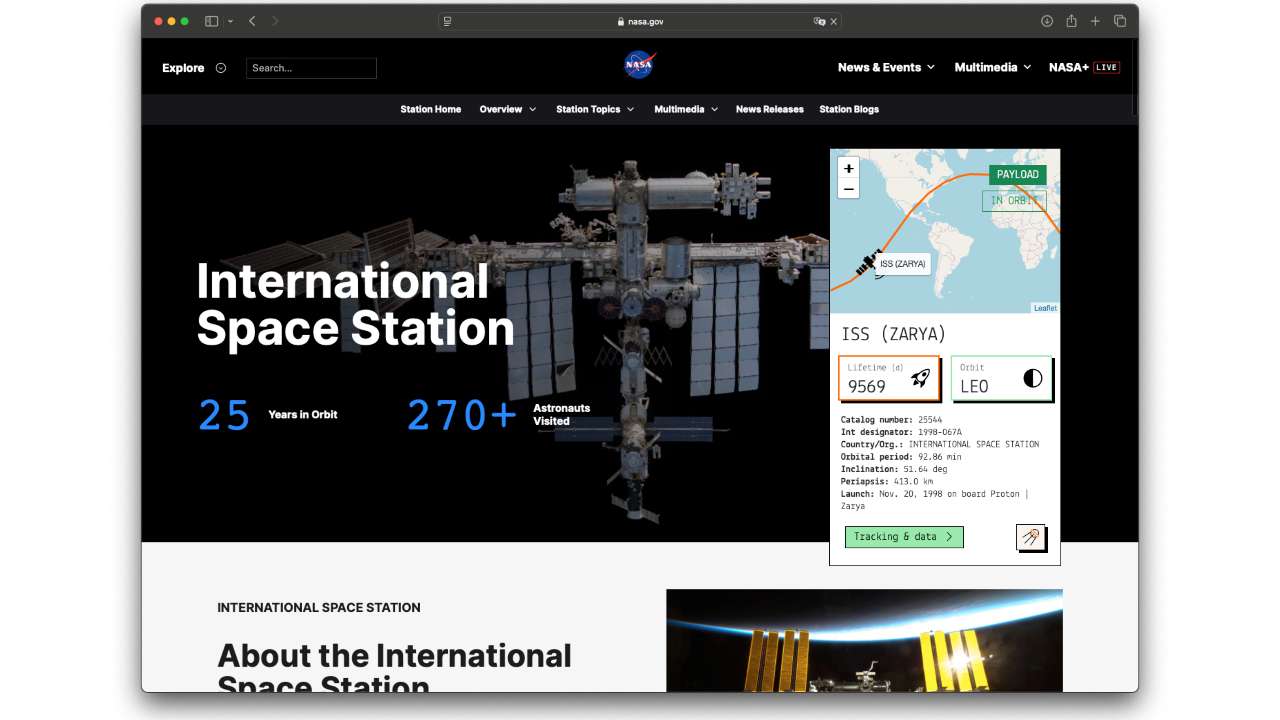Key statistics
Satellite MOS 1A (MOMO 1) at a glance.
Uptime
14177
Days in orbit
Revolutions
≈ 14.0
Per day
Orbit
SSO
Sun Synchronous Orbit
Inclination
98.9
Latest
Satellite identification and parameters
Extended collection of information and parameters for MOS 1A (MOMO 1).
Object identification
Identified? True
Debris? False
Object name: MOS 1A (MOMO 1)
International designator: 1987-018A
Object number (NORAD): 17527
Object ID (CCSDS): 17527
Country: JAPAN (JPN)
Current information (Y/N): Y
RCS size: LARGE
Orbital parameters
Period: 102.625 minutes
Inclination: 98.8715 deg
SMA: 7261.009 km
Apoapsis: 888.895 km
Periapsis: 876.853 km
RAAN: 35.5974 deg
Eccentricy: 0.00082921
Argument of periapsis: 358.1586 deg
Mean anomaly: 19.1666 deg
Mean motion: 14.0316042 rev/day
Mean motion (dot): 0.00000324 rev/day2
B* drag term: 0.00023586992 1/REarth
Two-line elements (TLE)
Creation date: Dec. 12, 2025, 10:14 a.m.
Reference frame: TEME
Reference center: EARTH
Epoch: Dec. 12, 2025, 3:16 a.m. UTC
TLE line 0: 0 MOS 1A (MOMO 1)
TLE line 1: 1 17527U 87018A 25346.13678633 .00000324 00000-0 23587-3 0 9990
TLE line 2: 2 17527 98.8715 35.5974 0008292 358.1586 19.1666 14.03160420983833
Live tracking on map
Real-time ground track for satellite MOS 1A (MOMO 1).
In-orbit conjunctions
A list of the most updated potential collisions computed for object MOS 1A (MOMO 1).
Associated space launch
Japanese Earth observation satellite
MOS 1A (MOMO 1) was lifted into orbit during the mission ‘N-2 | Momo 1a’, on board a N-2 space rocket.
The launch took place on Feb. 19, 1987, 1:23 a.m. from Osaki Launch Complex.
For more information about the launch, click the button.
N-2 | Momo 1a
Agency: N/A
Status: Launch Successful
Launch date: Feb. 19, 1987, 1:23 a.m. UTC
Rocket: N-2
Launch pad: Osaki Launch Complex
Location: Tanegashima Space Center, Japan
...
Latest news about this satellite
There are no fresh news available about this satellite. Check back as we update our databases every day.
Newsletter sign-up
Weekly statistics, charts and insights to help you stay on top of the space industry.




